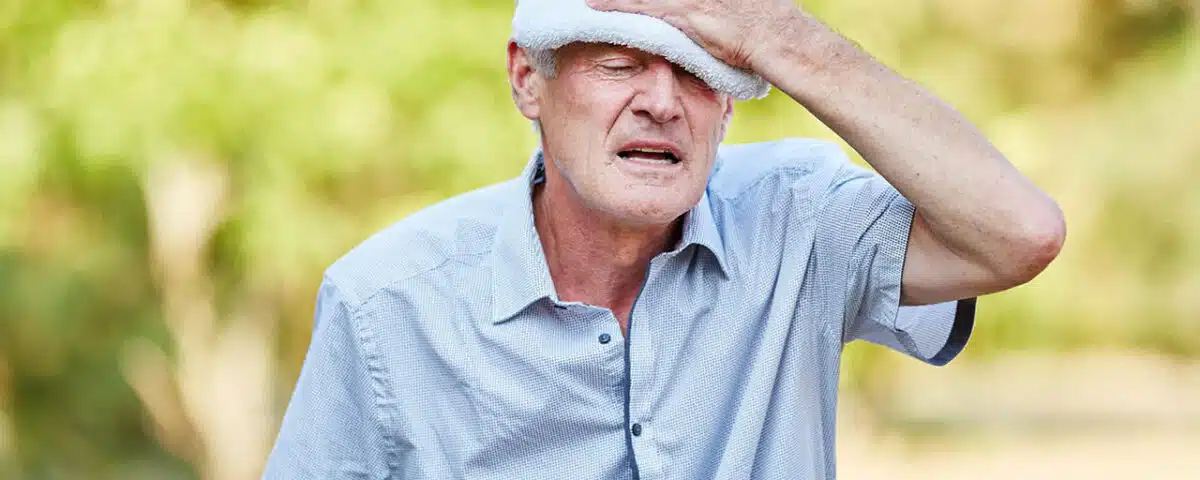
Take Care of Yourself and Elderly Loved Ones During Hot Weather
As we get closer to the end of August, the heat of the summer is in full swing. According to the Weather Channel, July 2024 set a global heat record, marking the 14th consecutive month of record-breaking temperatures, as reported by NASA and NOAA. With temperatures continuing to rise, it’s important to take extra care of yourself and your loved ones during the extreme heat.
What Temperatures are Dangerous for Senior Citizens?
Temperatures above 90°F can be hazardous for many people, especially when humidity is high, making the air feel even hotter. Seniors and older adults are particularly vulnerable to heat-related illnesses due to chronic health conditions, medications, and the natural aging process.
How Does the Heat Affect the Elderly?
Heat-related illnesses can develop when people are exposed to high temperatures for prolonged periods or spend time in the sun without adequate protection. It’s important to recognize the signs of potential heat-related conditions, including:
Heat Syncope
Feeling faint or dizzy during activity in hot weather may indicate heat syncope.
Heat Cramps
Intense physical activity in hot conditions can lead to muscle spasms or painful tightening in the legs, arms or stomach, which are symptoms of heat cramps.
Heat Edema
Swelling in the hands, feet, or ankles after exposure to hot weather is known as heat edema.
Heat Rash
Excessive sweating can cause clusters of small, red blisters on the skin, a condition referred to as heat rash.
Heat Exhaustion
Dizziness, weakness, lack of coordination, and nausea are signs of heat exhaustion, signaling that the body is struggling to cool itself down.
Heat Stroke
Heat stroke is a medical emergency that occurs when the body’s temperature exceeds 104°F. Symptoms include fainting, confusion, unusual behavior, lack of sweating, dry and flushed skin, and either a rapid, strong pulse or a slow, weak pulse.
How to Keep the Elderly from Overheating?
1. Stay Hydrated
- Encourage drinking plenty of liquids like water, fruit or vegetable juices, or healthy sports drinks with electrolytes.
- Avoid caffeinated beverages and alcohol.
2. Air Conditioning
- Keep the home cool with air conditioning or fans.
- Avoid using the oven. Consider meal preparation services to minimize heat from cooking.
- Keep curtains, shades and blinds closed to block out the sun.
3. Dress Appropriately
- Wear light-colored, lightweight, and loose-fitting clothing.
- Use a hat, sunglasses, and sunscreen to protect from sun exposure outdoors and prevent sunburns.
4. Limit Time Outside
- Stay cool indoors and avoid exercising and physical activity during the heat of the day.
- Plan outdoor activities for the morning or after sunset.
- Consider using essential transportation services or shopping and errand services with our in-home senior care services.
5. Cool Down
- Take cool (not cold) or lukewarm baths, showers, or sponge baths to quickly lower body temperature.
- Place wet towels with cool water on the neck, wrists, ankles, or armpits to aid the cooling process.
If you have older loved ones, make sure to stay in frequent contact during hot weather. It’s essential to check in on their health and well-being, as they may not always recognize when they are feeling overheated or dehydrated.
Need Help with Elderly Care?
We are here to help. For more information about our senior in-home care services, contact NEILS at 573-221-8282. Our professional caregivers are here to support you and your loved ones stay safe and comfortable in this summer heat.
